A.R. Mitchell's Blog
October 9, 2025
New Emotional Regulation
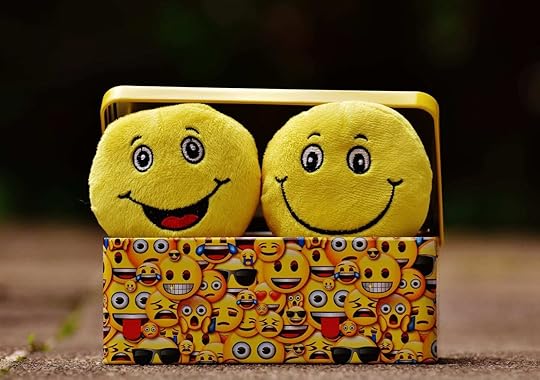
As you discover new emotions there will be moments when you’re surprised by the intensity of the emotions that show up. This is true for any emotion, but especially new ones about experiences that you are trying to heal from.
While these new emotions seem terrifying or even jolting to your still healing nervous system, it’s important that you don’t ignore or stuff them. Stuffing emotions to keep the ‘under control’ is not a good method of coping either. Neither is letting the emotions go full blast on yourself or whoever you’re around.
Instead, use your grounding and breathing exercises to work with the emotions. The goal is not control, the goal is to feel the emotion without allowing it to overpower you.
This is a lifelong process and you won’t always succeed. And sometimes it’s good that you don’t succeed. I’m going to offer a controversial opinion: Sometimes you need to allow your emotions to spill out onto others who aren’t in the healing process and will not respond or respect you if you don’t ‘speak their language’.
Don’t do this if its going to put you in danger, or cause physical harm or illegal activities and I won’t responsible for any fallout, should you decide to do this - but its my opinion that some people listen better if you’re screaming in their face.
Share Chronic Writer by VintageInkSlinger
Thanks for reading Chronic Writer by VintageInkSlinger! Subscribe for free to receive new posts and support my work.
October 2, 2025
New Emotions
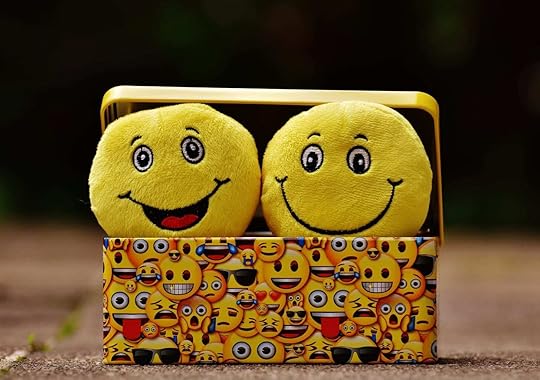
As we get better at recognizing our emotions we may start to have new ones… such as regret, grief and just a general ick. My general ick is less than shame, but it makes me more functional and able to feel things.
Trauma can emotionally numb us… especially if we grew up in an environment that did not let us have emotions. These stone-faced families cover emotions with control and manipulation. The people in them are often numb and don’t realize it because that’s just how they grew up. They also don’t know that they need to do healing, because they think the lack of emotions is them ‘handling it’.
This isn’t true. And this numbness makes it more difficult for us to emotionally regulate because the emotional speedometer or emotional battery has no scale to it. There is no ability to consider levels of emotion. There is just no emotion - then BAM! - big emotion!
As we heal, more of the numbness slides off to reveal bigger emotions underneath. These are emotions that we were often not allowed to have. They feel dangerous to have sometimes, because they’re new.
The best way to deal with emotions when you’ve spent decades emotionally numbing yourself, is to slowly allow yourself to feel the emotions in small increments. You’ve gotten really good over the years at shutting down the emotions. As you heal, you’ll be able to peek at the emotions and when they get too overwhelming, you can use your trained numbing skills to shut the door.
It’s worth noting that you should not return to bad habits like drug abuse or alcohol, misuse of illegal substances or self injury, if you need to shut down the emotions. If you feel yourself wanting to do those things (or other illegal or self-harming activities) when you look at the overwhelming emotions, please seek help from professionals who are trained to handle substance abuse, self injury or other mental health issues.
Share Chronic Writer by VintageInkSlinger
Thanks for reading Chronic Writer by VintageInkSlinger! Subscribe for free to receive new posts and support my work.
September 25, 2025
Skills to Heal: Understanding What’s Missing & Where and How to Get it
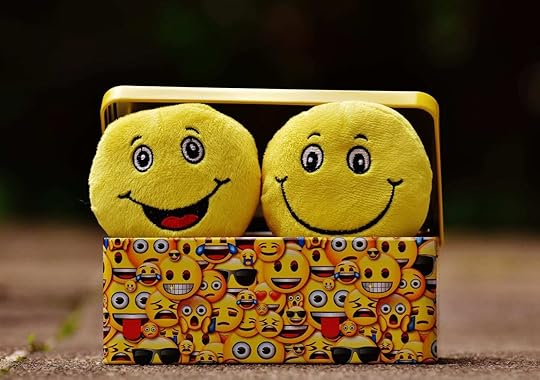
As you heal you will find emotions you weren’t allowed to have and people who could not give you what you needed. One of the forgotten things about trauma is that there can be actions of trauma (physical abuse) and inactions of trauma (neglect).
Also, because some people weren’t ready to heal themselves they dumped things on you. These things were emotions that you did not cause and the situations were generally not your fault. This is especially true if you were a child at the time.
These incidents leave holes in us. As a writer and storyteller I get to fill these holes in my life with fictional characters. That sounds a little strange - but these fictional people are under my control to a certain extent and they allow me to have someone who has enough compassion, emotional maturity or protector guardian vibes to ‘be there’ for the aftermath of the hurt me. These fictional people fill in the holes - so that later in life, I can be there for someone else, because I’m a little further in my healing. Officially therapists call it ‘re-parenting’.
Re-parenting is just giving yourself what you could not have in the moment you were traumatized. So, if you were in a car accident and no one came to check to see if you were all right - you can send in a superhero to do that for you.
Imagination is powerful and a small ‘fantasy’ like this rewrites the brain so that whatever you experienced can become less frightening or overwhelming because you’re now less alone.
Not everyone does this. Many people find it strange, until they realize that this is storytelling at its core. Something bad happened and we the little human weren’t capable of fixing it - so we had to get someone we trusted who could handle the big scary thing.
If you’re interested in trying this here’s a link: https://chronicwriter.substack.com/p/author-voice-4e1
Share Chronic Writer by VintageInkSlinger
Thanks for reading Chronic Writer by VintageInkSlinger! Subscribe for free to receive new posts and support my work.
September 18, 2025
Skills to Heal: Self Compassion
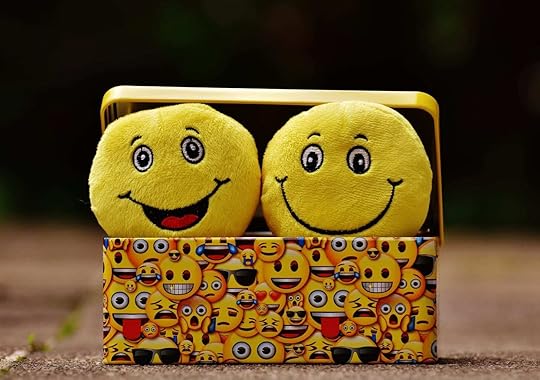
Trauma survivors’ nervous systems get rewired because terrible things happen to them. This rewiring puts the survival system in charge of the nervous system. The nervous system wasn’t meant to have the survival system on front and center 24/7.
This is why it’s important to have compassion on yourself as you work through the traumatic incidents. You’re not a coward. There’s nothing morally wrong with you when you re-experience the trauma and you shouldn’t feel like a failure. You’re in progress and you’re healing. That’s not an easy road to take.
Understanding what you’re going through instead of condemning yourself is vital on this road trip that most people will never take. Most are not brave enough to acknowledge and start to heal.
I have unfortunately found that few people are willing to try and understand the damage that trauma does to people. This is unfortunate - but it doesn’t make you a failure. You are not going to change them. Especially if they don’t want to listen.
The best you can do is continue to heal and understand the signals that your body sends to you. Progress doesn’t always look like progress because healing is difficult.
Also - self compassion isn’t you being lazy. It’s not you doing a sloppy job. It’s you saying, “Not today - but someday.” And the perseverance to go forward with that consistency is what makes healing happen.
Share Chronic Writer by VintageInkSlinger
Thanks for reading Chronic Writer by VintageInkSlinger! Subscribe for free to receive new posts and support my work.
September 11, 2025
Skills to Heal: Recognizing Your Body’s Signals
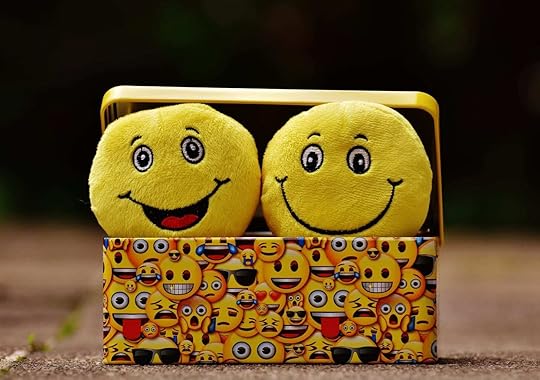
Everyone’s body reacts differently. We can group responses, but your body is going to process those responses differently. This is why it’s important to not only know your triggers - but to know the physical signals in your body that signal a trigger happening.
Remember, these are survival systems. They won’t always make sense, but they do need to be noticed.
For those who have never experienced a trigger I will go through the steps.
1. Something occurs that is tied back to a traumatic incident.
2. The body’s survival system reacts with one of the five fear responses. (Fight, Flight, Faint, Flood, Freeze)
3. The person looses all sense of time and is dragged back to the original traumatic incident - because trauma and survival systems don’t understand time. Time is a logic system function. Survival systems only know NOW.
4. The person is in the traumatic incident. They are re-living it, even though they are standing right in front of you.
Physically in their body they may experience tightness of the chest, changes in vision, dizziness, sweating and inability to breathe.
Their eyes may be wide, they may be unable to speak. They might be physically unable to move, pass out/faint, or grab onto the nearest thing that isn’t a threat. They could also knock you out - because they’re mistaking you for the threat.
Also, all the emotions could come to the surface and you could just see chaotic everything - from fear, anger to complete meltdown with tears and agony on a toddler level. This is not to make fun of them, it just means that emotionally they got overwhelmed and didn’t know which emotion to deal with first and the body said, “All. All the emotions. Uncensored. Right now.”
These responses are where the breathing techniques come into service. A survivor may have some control, but not always, because again - they just re-experienced something horrible. This doesn’t excuse their actions if they hit you - but they should be able to explain what triggered them later. And the other person needs to be able to listen and understand. I get pretty salty on this topic of listening and understanding even if it makes no sense to you.
Because triggers and the events that follow are so physically and emotionally draining as well as disruptive to those who experience them its important for you to be able to recognize the start of your own survival system and know what to do not only for yourself, but to help those who you can trust.
Share Chronic Writer by VintageInkSlinger
Thanks for reading Chronic Writer by VintageInkSlinger! Subscribe for free to receive new posts and support my work.
September 4, 2025
Skills to Heal: Knowing Your Triggers
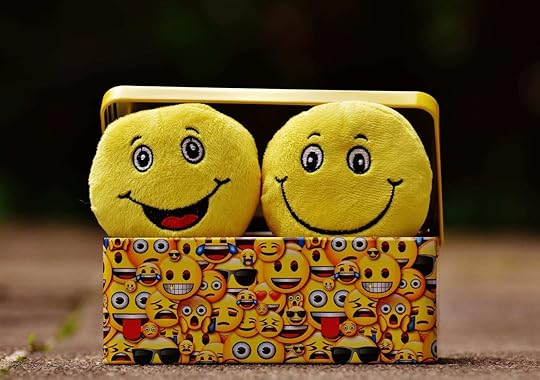
A trigger is simply something that reminds you of the trauma and pushes you to the point where your survival system kicks in. It doesn’t have to be flashback level - it can be something as simple as something that alerts you and reminds you of the original incident.
I want to mention that while some people make fun of triggers - they are real and the more aware you become of your personal triggers, the more you’ll be able to recognize the patterns and work to bring your nervous system into alignment with your healing process.
Not all of your triggers are going to be the big bad incident. They can be mundane and small too. They can be smells…. for instance, the cologne or after shave of a tyrant boss. It doesn’t matter that you’re decades away from that job - the smell can take you back there.
Triggers can also be things like muscle memories… like bumping an old injury and re-experiencing the accident which caused it.
Knowing what sets your nervous system off will help you to overcome it in the moment. You won’t always be able to overcome it instantly, but with practice you will be able to sometimes convince and calm your nervous system and get your survival system to calm down.
This takes practice, but it spills over into every day occurrences and helps control emotions during high intensity moments. Regulating emotions also allows you to have reserves of survival systems to help take control of situations if you need to.
Share Chronic Writer by VintageInkSlinger
Thanks for reading Chronic Writer by VintageInkSlinger! Subscribe for free to receive new posts and support my work.
August 21, 2025
Skills to Heal: Emotional Regulation
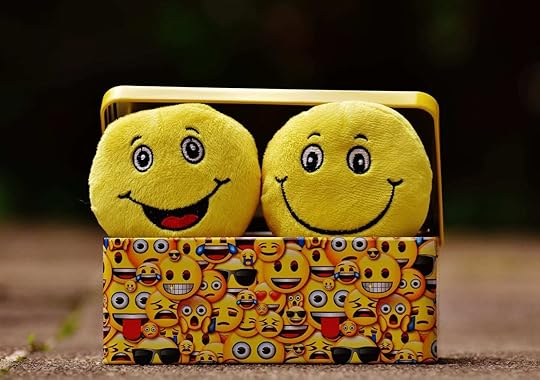
A few weeks ago I talked about resources, specifically energy resources comparing them to a cell phone battery that needed recharging.
The idea is that we have a limited amount of energy and need to recharge in order to function.
Emotional Regulation is similar. If you pay attention to your emotions and energy levels, just by checking in with yourself and seeing where your ‘battery’ is - you have a better idea of how much you can deal with in that day.
For example: You wake up and you have 95% energy… but you get stuck in traffic, hate your job, spill your coffee on your white shirt and are greeted at work with a meeting that you weren’t looking forward to being at, your anger might kick in and shift this up to 100%. But the problem with the anger kicking in is that it’s from your survival systems, so once you calm down - you’ll probably have about 60% emotional energy to face the rest of the day.
By the end of the day that percentage may have dropped to 20% and you’ll be especially cranky when you get home.
However: If you know this, you can potentially arrange your day to recharge that 60% back up to at least 75%. This energy re-charge and awareness of the need helps you get through your day.
Emotional regulation is an energy budget. Not just physical energy, but emotional energy. The idea is that you slowly become aware of your emotions, what they are/what you’re feeling, and how that’s improving or ruining your system.
Emotions are physically in the body, so they affect us physically. That’s why it’s important to recognize and work with our emotions.
To do this start with three questions:
If my energy level was a cell phone battery, would I need to recharge it?
If yes - step away from the situation and calm yourself down. (More on that later) But you will still need to move to question two.
If no - name the percentage and move on to the next question.
What emotion am I feeling?
The only rule here is that you have to name the emotion. Happy, sad, angry are the top three emotions that most adults know. It’s perfectly ok to start with those.
How is this emotion making my body feel?
This is where you start connecting how emotions live in your body. This is an important step in the process because many people, especially in western culture, only pay attention to the logic that they believe lives in their brain and they often ignore the body. When the body begins to heal, you have to reunite the brain and the body and teach them to work together. So it’s not just brain/logic work - it’s teaching your body to relax and be safe after something puts you into survival.
This process of connecting brain and body is vital for healing. It’s called Grounding and we’ll talk about it next week.
Share Chronic Writer by VintageInkSlinger
Thanks for reading Chronic Writer by VintageInkSlinger! Subscribe for free to receive new posts and support my work.
August 14, 2025
Skills to Heal: Counseling
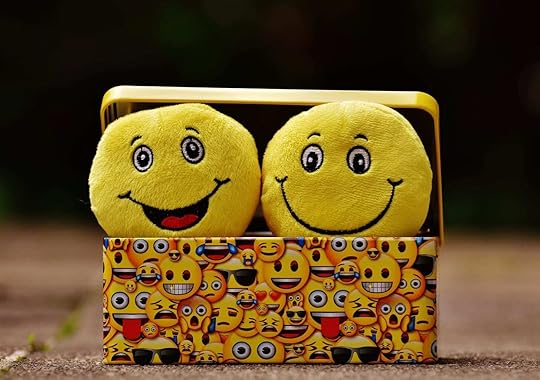
A lot people ask: “Why would I need counseling?”
The cultural ideas around counseling include tv shows where someone talks to a doctor about their hurts, bad habits and things that bother them. The implication is that a counselor is someone you pay to talk about your problems and that counselor invents more problems in your life and you usually end up being caught in a blame game or drama triangle.
That’s not true. A well trained counselor will be able to recognize unhelpful patterns in your life and help you correct them. These problems can be from childhood and yes, some can be blamed on parents. But a good counselor does not want you to stay a helpless victim. They will not only help you recognize these problems, but they will work with you until you are able to deal with the problems, and hopefully recognize and avoid them.
They are not like talking to a good friend. They have professional obligations and boundaries. They may hold all your secrets, but a counselor knows how to keep you from being held hostage by those secrets. They also know how to turn the tables on the secrets’ power.
Let me explain: A secret can hold power over you. A counselor can take that secret and help you regain your power.
Many people who have experienced trauma believe that they are alone in it that traumatic experience and don’t know how to cope. It wrecks them. They often think they deserved the traumatic event and it takes a toll on who they are, often transforming them into a completely different person.
A counselor has the knowledge and the skills and will pass them to you, paired with reassurance that what you experienced does not make you less of a good person.
This is especially helpful to survivors who keep finding themselves in situations that are similar to the rotten ones they left.
I’m recommending counseling first on this list because every person has different experiences and will need a slightly different healing process. Many of the skills are similar - its the situations that need to be identified and then worked through with a counselor.
Share Chronic Writer by VintageInkSlinger
Thanks for reading Chronic Writer by VintageInkSlinger! Subscribe for free to receive new posts and support my work.
August 8, 2025
Skills to Heal: Grounding
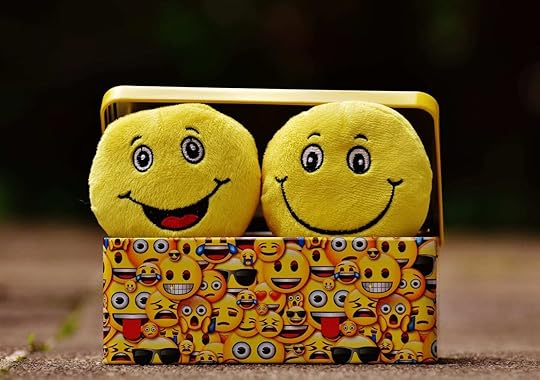
Last week I talked about how the brain and body need to connect in order to heal. I wanted to explain a little more about this.
A lot people who have been raised in western culture have been taught to rely on logic, which is most commonly thought of as being in the brain. Then when trauma occurs to the body - these people rely more and more on their logic brain and this causes them to live more and more in their heads instead of experiencing life through a body.
When we get frightened, our physical body reacts. Logic does’t exist - because our survival systems take over. This is true with most of our emotions, especially when experiencing a flashback or trigger. When our survival systems are in charge of our reactions, logic isn’t the thing that will save us. Our bodies save us.
So, the connection between the brain and the body is important to put civilized logic back in charge so our triggers and emotions don’t rule our lives.
The way to work on this brain body connection is to exercise the muscle systems that connect the brain and body. This system is the nervous system.
When people study the nervous system in school, they usually learn that the nerves are automatic and can’t be controlled, because they’re messengers between the brain and the body.
An example: The hand touches a hot pan. Messages in the fingers, go to the brain and register as pain. You say ouch and probably some bad words, while dropping the pan. But because all this happened almost instantly, your fingers aren’t permanently injured - they’re just a little bit ouch. Your heart is probably racing and you might be holding your breath.
This is a normal brain and body interaction. If you notice, it’s a lot like the fear or survival reaction. That’s because it is the same reaction.
All of this is automatic. But the piece of the fear/survival response that isn’t automatic is the reaction of your breath.
Breathing is the key to building the bridge between the nervous system and the body. The method is breathing exercises.
There are multiple different types of breathing exercises. You can search online and learn in whatever format suits your learning style best.
Share Chronic Writer by VintageInkSlinger
Thanks for reading Chronic Writer by VintageInkSlinger! Subscribe for free to receive new posts and support my work.
August 7, 2025
Skills to Heal
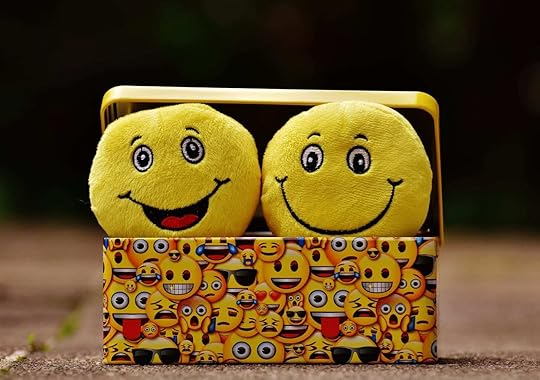
Skills to heal aren’t just practical things like knowing medical first aid. Interestingly enough, no one (that I know of) has come up with a trauma first aid course.
These are what people like to call coping mechanisms… but the unfortunate thing about just a coping mechanism is that it’s a holding place. It’s a small skill to help you in a high level crisis moment - it’s not a healing skill.
Skills to Heal are things like:
Counseling
Emotional Regulation
Grounding
Knowing Your Triggers
Recognizing Your Body’s Signals
Understanding what you’re going through instead of condemning yourself.
Understanding What’s Missing & Where and How to Get it
We’ll go through these individually before we get to the bigger skills.
Share Chronic Writer by VintageInkSlinger
Thanks for reading Chronic Writer by VintageInkSlinger! Subscribe for free to receive new posts and support my work.



